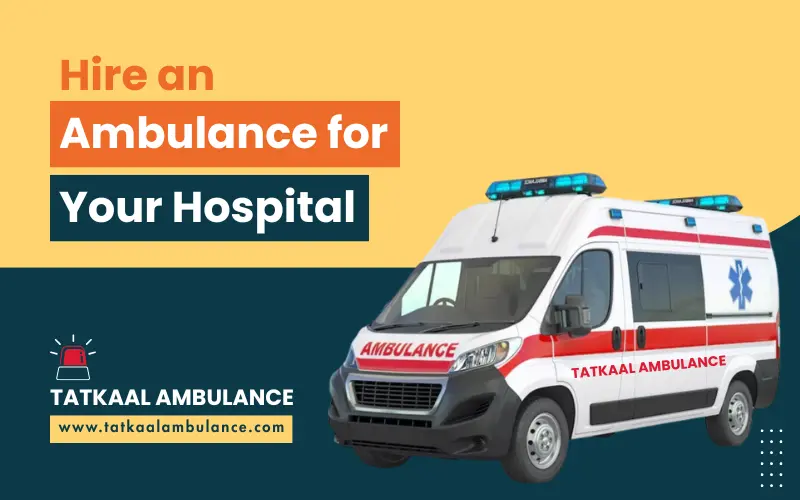In a world where emergencies strike without warning, hospitals must be ready to act — fast. When a patient needs help urgently, the clock starts ticking the moment the distress call is made. That’s why every hospital, whether large or small, should seriously consider hiring a professional & Affordable ambulance service.
It’s not just about transport. It’s about delivering medical care before the hospital door is even reached.
Why Every Hospital Needs an Ambulance Partner
1. Instant Access to Emergency Support
When a patient’s life is on the line, delay can be deadly. A hospital-linked ambulance ensures faster response times and immediate care. No waiting, no chaos — just action.
2. Fully Equipped Mobile Medical Units
Modern ambulances are no less than miniature emergency rooms. From oxygen cylinders to defibrillators, stretchers to ventilators — everything is on board to begin treatment on the spot.
3. Professional Paramedics Onboard
Ambulances come staffed with trained medical personnel — paramedics and EMTs who know how to stabilize critical patients during transport. They bridge the gap between the site of the emergency and the hospital’s ICU.
4. 24/7 Availability
Illness doesn’t take weekends off. Ambulance services operate around the clock, giving hospitals peace of mind that help is always available, day or night.
5. Seamless Inter-Hospital Transfers
Need to shift a patient to a super-specialty center? Ambulances ensure safe, monitored, and smooth inter-facility transfers for serious cases — no delay, no risk.
6. Customized Ambulance Types
We have many types of Ambulances, Hospitals can choose as per their requirement. You can hire ambulances suited to specific cases:
- Basic Life Support (BLS)
- Advanced Life Support (ALS)
- ICU-level Ambulances
- Pediatric or Neonatal Units
- Air Ambulance (for long-distance or rural reach)
You Can Also Read: What Is the Difference Between ALS and BLS?
7. Reduces In-House Operational Stress
Managing vehicles, medical staff, and maintenance takes time and resources. By hiring a third-party ambulance service, hospitals can focus more on patient care inside while the transportation side is professionally managed outside.
8. GPS Tracking and Faster Reach
Modern ambulance fleets come with real-time GPS, ensuring the closest available unit responds immediately. This helps in reducing response time and avoiding traffic delays.
9. Positive Public Perception
When patients see a hospital has a quick, reliable ambulance service, it builds trust and reputation. It signals that the hospital takes emergencies seriously — and is always prepared.
10. On-Site Event Coverage
Hospitals can also use hired ambulance services to cover sports events, corporate camps, or public gatherings. It boosts visibility and acts as a valuable service extension.
11. Compliant and Certified Operations
Reputed ambulance providers ensure their vehicles and staff follow medical regulations, hygiene standards, and safety protocols. That means hospitals stay compliant without extra headaches.
12. Reduces Legal and Safety Risks
Having a professional service means all the legal requirements — from insurance to staff certification — are already covered, keeping the hospital protected.
Also Read: Hire an Ambulance on Contract Basis
In emergencies, every second counts. By hiring a dependable ambulance service, hospitals extend their care beyond their doors and closer to those who need it most. It’s not just a service — it’s a promise to be there when it truly matters.

